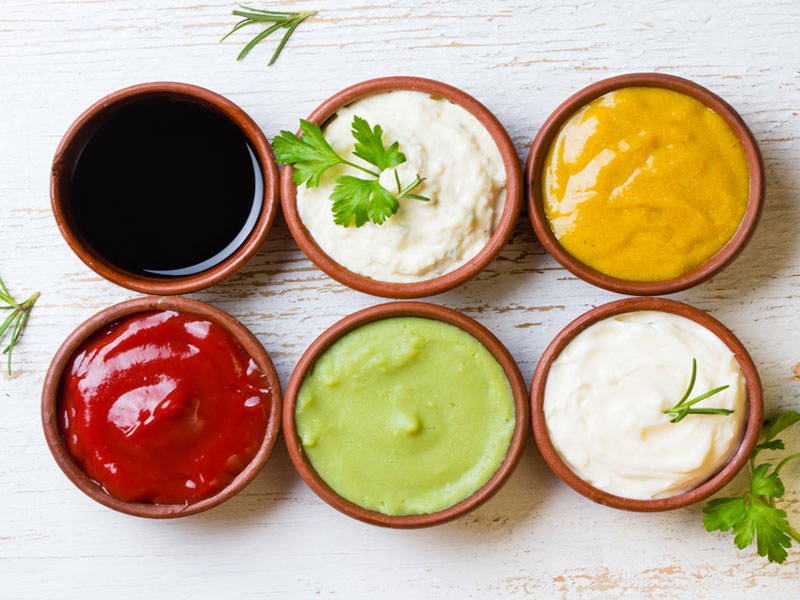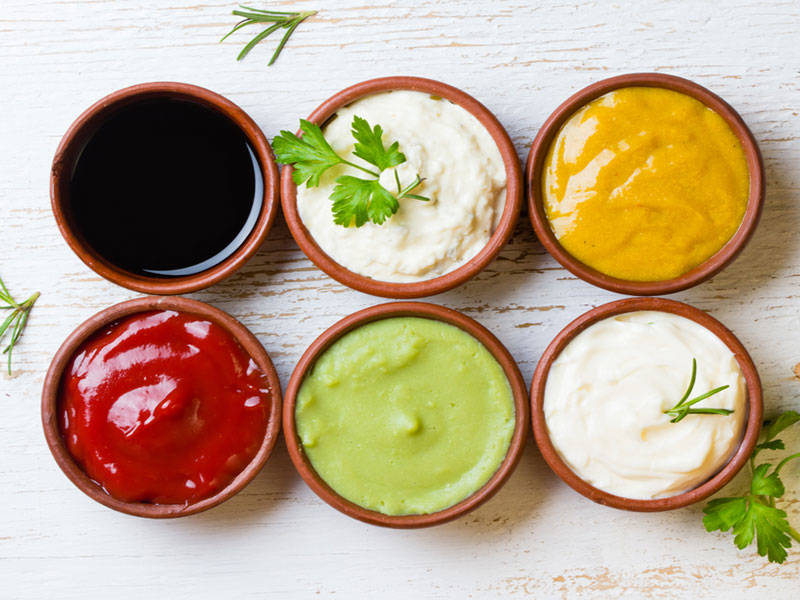The Sublime World of Homemade Sauce
Homemade sauce has become an increasingly popular culinary trend in recent years. From ketchup to barbecue sauce, people are discovering the joy of creating their own sauces right in the comfort of their own kitchens. This article explores the reasons behind this growing trend, the benefits of making homemade sauce, and some popular recipes for homemade sauces.
The allure of homemade sauce lies in the freedom and creativity it offers. Unlike store-bought sauces, which often contain preservatives and artificial ingredients, homemade sauce allows for complete control over the ingredients. This means that individuals can tailor the sauce to their exact preferences, creating flavors that are unique to their own taste buds. From adjusting the levels of sweetness, spiciness, and tanginess to experimenting with different combinations of herbs and spices, homemade sauce offers endless possibilities for culinary exploration.
One of the key benefits of making homemade sauce is the ability to ensure its quality and freshness. By using fresh, high-quality ingredients and avoiding the need for additives and preservatives, homemade sauce boasts a flavor and freshness that is unmatched by its store-bought counterparts. Additionally, knowing exactly what goes into the sauce provides peace of mind for health-conscious individuals, as they can avoid any potentially harmful additives or allergens.
Another advantage of making homemade sauce is the cost-effectiveness. While some specialty store-bought sauces can be quite expensive, making the sauce at home allows individuals to control the quantity and portion sizes, saving money in the long run. Moreover, with the availability of raw ingredients in local markets and grocery stores, making homemade sauce is often more affordable than purchasing pre-packaged options.
Homemade sauce also brings people together in the kitchen. Whether it’s a family gathering, a dinner party, or simply a casual cooking session with friends, making sauce from scratch can be a fun and collaborative culinary experience. From measuring and chopping ingredients to stirring and tasting, the process of creating homemade sauce fosters a sense of togetherness and shared enjoyment. It also presents an opportunity to pass down family recipes and traditions from one generation to the next, creating a cherished connection with the past.
Now, let’s dive into some popular recipes for homemade sauce:
1. Classic Tomato Sauce: Start by sautéing onions and garlic in olive oil until they are soft and fragrant. Add canned tomatoes, tomato paste, and a combination of herbs such as basil, parsley, and oregano. Simmer the sauce for at least an hour to allow the flavors to meld together. Season with salt, sugar, and pepper to taste.
2. Barbecue Sauce: In a saucepan, combine ketchup, brown sugar, apple cider vinegar, Worcestershire sauce, mustard, and a dash of liquid smoke. Bring the mixture to a simmer and let it cook for about 10 minutes. Adjust the sweetness or tanginess by adding more sugar or vinegar. For extra heat, throw in some chili flakes or cayenne pepper.

3. Pesto Sauce: Blend together fresh basil leaves, pine nuts, garlic, Parmesan cheese, and olive oil until smooth. Season with salt and pepper to taste. This versatile sauce can be used in pasta dishes, as a spread for sandwiches, or as a dip for vegetables.
4. Salsa Verde: In a food processor, combine fresh parsley, cilantro, garlic, capers, anchovies, lemon juice, and olive oil. Pulse until the sauce reaches a chunky consistency. Adjust the flavors by adding salt and pepper as per your taste. This zesty sauce goes well with grilled fish or roasted vegetables.
5. Teriyaki Sauce: In a saucepan, mix together soy sauce, brown sugar, ginger, garlic, and sesame oil. Bring the mixture to a boil and then reduce the heat to a simmer. Let it cook until the sauce has thickened slightly. You can use this sauce as a marinade for meats or as a glaze for stir-fried vegetables.
With these recipes as a starting point, homemade sauce lovers can experiment with different ingredients and techniques to create their own signature flavors. Whether it is a tomato-based sauce, a zesty salsa, or a sweet and tangy barbecue glaze, the possibilities are endless when making sauce from scratch.
In conclusion, the rising popularity of homemade sauce can be attributed to the desire for creative expression in the kitchen, the need for quality and freshness, cost-effectiveness, and the joy of shared cooking experiences. Making sauce from scratch enables individuals to produce flavors that cater to their exact preferences while using fresh, natural ingredients. So, why settle for mass-produced options when you can savor the sublime world of homemade sauce? Grab your apron, gather your ingredients, and let your imagination run wild in the realm of homemade sauce.The Business of Homemade Sauce: Opportunities and Challenges
1. Market Analysis: Understanding the Demand
The market for homemade sauce has witnessed significant growth in recent years, driven by an increasing interest in healthy eating, a desire for unique flavor profiles, and a preference for natural and fresh ingredients. According to a report by Grand View Research, the global homemade sauce market is projected to reach a value of $40.4 billion by 2025, with a compound annual growth rate of 3.8%. This presents a lucrative opportunity for entrepreneurs and food enthusiasts looking to enter the homemade sauce business.
2. Target Market Identification: Niche or Mass Appeal?
One of the key considerations when starting a homemade sauce business is identifying the target market. Entrepreneurs can choose to cater to a niche market, such as health-conscious individuals, organic food lovers, or those with dietary restrictions. Alternatively, they may opt for a broader approach to target a wider consumer base. Understanding the preferences and needs of the target market is crucial for developing and marketing the right homemade sauces.
3. Product Development: Building a Unique Flavor Profile

Creating a standout homemade sauce requires a focus on product development. Entrepreneurs should experiment with different combinations of ingredients, herbs, and spices to develop a unique flavor profile that sets their sauce apart from competitors. Conducting taste tests and gathering feedback from potential customers can help refine the flavors and ensure a successful product launch.
4. Sourcing Ingredients: Quality Matters
The success of a homemade sauce business heavily relies on sourcing high-quality ingredients. Entrepreneurs should establish relationships with local farmers, suppliers, and grocers to ensure a consistent supply of fresh and organic produce. By prioritizing quality ingredients, homemade sauce makers can elevate the taste and overall appeal of their products.
5. Packaging and Branding: Creating an Appealing Image
Effective packaging and branding are crucial in capturing consumers’ attention and differentiating homemade sauce products on store shelves. Investing in eye-catching and informative packaging that highlights the unique selling points of the sauce can go a long way in attracting customers. Additionally, developing a strong brand identity, including a compelling logo and story, can help build trust and loyalty among consumers.
6. Distribution Channels: Reaching the Market
Determining the most effective distribution channels is key to ensure the homemade sauce reaches the target market efficiently. Entrepreneurs can explore various options, including selling online through their own website or e-commerce platforms, partnering with local grocery stores, participating in farmers’ markets, or collaborating with restaurants and food service providers. A combination of distribution channels can maximize the exposure and availability of homemade sauces.
7. Marketing and Promotion: Spreading the Word
Promoting homemade sauces requires a strategic marketing approach. Social media platforms, such as Instagram and Facebook, can be leveraged to showcase the versatility and usage ideas for the sauce, engage with customers, and create a loyal following. Collaborating with food bloggers, hosting cooking demonstrations, and offering free samples at local events are additional effective marketing techniques to generate buzz and drive sales.
8. Regulatory Compliance: Complying with Food Safety Standards

When starting a homemade sauce business, entrepreneurs must ensure compliance with food safety standards and regulations. This includes obtaining the necessary permits and licenses, following proper labeling requirements, and conducting regular health and safety inspections. Adhering to these regulations is essential to protect the reputation of the business and ensure consumer trust.
9. Scaling Up: From Home Kitchen to Small Production
As demand grows, entrepreneurs may need to consider scaling up their production capacity from a home kitchen to a small-scale commercial production facility. This involves investing in commercial-grade equipment, such as industrial blenders and bottling machines, and meeting additional regulatory requirements. Careful planning and financial management are crucial during this transition to ensure smooth operations and profitability.
10. Competitive Landscape: Standing Out from the Crowd
The homemade sauce market is becoming increasingly competitive. To succeed, entrepreneurs must identify their unique selling proposition (USP) and emphasize it in their marketing efforts. This could include embracing a specific cuisine, highlighting the use of local and organic ingredients, or focusing on a specific dietary need, such as gluten-free or vegan options. Differentiating the homemade sauces from mass-produced options is essential for long-term success.
11. Customer Feedback and Adaptation: Continuous Improvement
Listening to customer feedback and continuously adapting and improving the homemade sauce products is vital for sustainable growth. Asking for reviews, conducting surveys, and actively engaging with customers can provide valuable insights on taste preferences, packaging preferences, and potential areas for enhancement. This information can be utilized to refine existing recipes, introduce new flavors, or even expand the product line.
12. Collaborations and Expansion: Exploring New Avenues
Entrepreneurs in the homemade sauce business can explore collaborations with complementary food businesses, such as restaurants, delis, or specialty food stores, to expand their reach and introduce their sauces to a wider audience. Additionally, considering expanding the product line to include other complementary products, such as marinades, salad dressings, or condiments, can help diversify revenue streams and capitalize on existing customer loyalty.
In conclusion, the homemade sauce market presents a promising opportunity for passionate food enthusiasts and entrepreneurs. By understanding the target market, developing unique flavors, sourcing high-quality ingredients, implementing effective packaging and branding strategies, and utilizing appropriate distribution channels and marketing techniques, aspiring homemade sauce makers can turn their love for sauce-making into a successful and profitable business venture. With creativity, dedication, and a focus on meeting consumer demands, the possibilities in the world of homemade sauce are endless.









